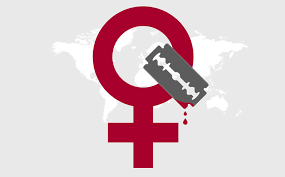Banjul, 3 September 2021: IHRDA, on behalf of victims, filed on 2 September 2021 two cases, concerning the protection of women from sexual and gender based violence, against the Republic of Sierra Leone before the Court of Justice of the Economic Community of West African States (the ECOWAS Court).
In the first case, the victim, a farmer and politician, was attacked and gang-raped on her farm in the presence of her children and other family relatives in April 2018. The victim reported the incident to the police, but no effective investigation has been done to date. Meanwhile, the victim is still traumatised by the attack and suffers various health complications.
In the second case, the victim was raped on in January 2019 by a Paramount Chief of her community. Though she reported the incident and took several medical tests proving she was assaulted, there has been no effective investigation till date and the perpetrator has not been punished. The victim feels frustrated by her inability to get justice for the violence she suffered, believing the perpetrator has escaped punishment due to the power he wields.
The suits allege that due to the lack of effective investigation and prosecution of the perpetrators, Sierra Leone has violated the victims’ right to remedy and access to justice, and has also failed in its obligation to protect the victims’ rights to dignity and to freedom from torture, cruel, inhumane and degrading treatment, as well as discrimination. These are rights and obligations enshrined in several treaties to which Sierra Leone is party, notably the African Charter on Human and Peoples’ Rights, the Protocol to the African Charter on Human and Peoples’ Rights on the Rights of Women in Africa, the Convention on the Elimination of all forms of Discrimination Against Women and the International Convention on Civil and Political Rights.
The Plaintiffs request the ECOWAS Court to declare Sierra Leone is liable for the human rights violations; to order Sierra Leone to pay the victims monetary compensation for damages suffered, to provide the victims medical and psychosocial support, and to put in place several other structural measures to curb the prevalence of all forms of sexual violence against women.






